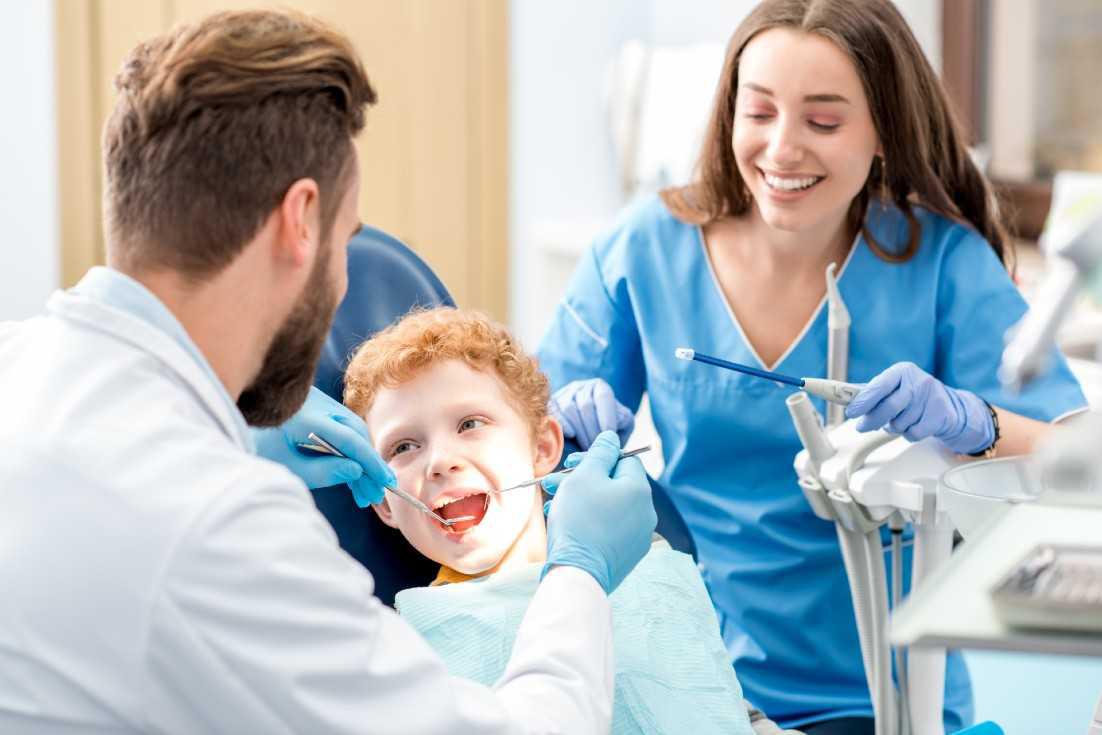Pediatric Dentistry - Arlington, VA

At Gorgeous Smile, we believe that healthy smiles start early. Our trusted Arlington pediatric dentist provides compassionate, high-quality dental care tailored specifically for children. From preventive care to addressing dental concerns, we’re here to ensure every child in Arlington, VA, and surrounding areas feels comfortable, confident, and cared for during their dental visits.
Why Choose Gorgeous Smile for Your Child’s Dental Care?
When it comes to your child’s oral health, you want a dedicated, experienced dental team you can trust. At Gorgeous Smile, we’re committed to providing expert pediatric dentistry in Arlington, VA in a friendly and welcoming atmosphere. Here’s what makes us stand out:
- Specialized Pediatric Care
Our team has extensive training in treating young patients, ensuring we meet both their dental needs and emotional comfort.
- Gentle and Kid-Friendly Approach
We create a positive dental experience, helping children develop healthy habits and reduce dental anxiety.
- Comprehensive Services
From routine cleanings to dental sealants and emergency care, we offer a wide range of pediatric dental services to keep your child’s smile healthy and bright.
- Conveniently Located in Arlington
Serving families in Arlington, VA, and nearby areas, our practice is easily accessible for your busy schedule.
Your child deserves a dental home that prioritizes their health and happiness, and Gorgeous Smile is here to provide exactly that.
Comprehensive Pediatric Dentistry Services
We offer a full spectrum of treatments for children’s dental health. These services are tailored to meet each child’s needs, promoting a lifetime of excellent oral health.
Preventive Care
Prevention is key to maintaining healthy teeth. Our preventive care services include:
- Thorough dental exams and professional cleanings
- Fluoride treatments for improved enamel strength
- Dental sealants to protect vulnerable molars from cavities
- Oral hygiene education to encourage healthy brushing and flossing habits
Restorative Dentistry
If cavities or other dental issues arise, our Arlington pediatric dentist provides gentle and effective restorative treatments, such as:
- Tooth-colored fillings to repair cavities
- Pediatric crowns to preserve damaged teeth
- Pulp therapy (root canal treatment) for infected baby teeth
Emergency Dentistry for Kids
Accidents can happen, and when they do, we’re here for you. Gorgeous Smile offers prompt, compassionate emergency care for children experiencing dental injuries, knocked-out teeth, or other urgent issues.
Orthodontic Screenings
Early orthodontic evaluations can help identify potential alignment issues before they worsen. Our team checks for any signs of crowding, spacing, or bite problems to ensure timely intervention.
Special Needs Dentistry
At Gorgeous Smile, we take pride in offering personalized care for children with special needs. Every child deserves outstanding dental care, and our team is equipped to provide a stress-free experience.
What to Expect During Your Visit
We want every visit to be a positive experience for parents and children alike. Here’s what you can expect when you come to Gorgeous Smile for pediatric dentistry in Arlington, VA:
- Warm Welcome
From the moment you step into our office, you and your child will feel the friendly and inviting atmosphere we provide.
- Comprehensive Care
Our experienced team performs a thorough assessment of your child’s oral health, ensuring we detect any concerns early.
- Educational Approach
We take time to guide both parents and kids on proper dental care techniques, empowering you to maintain healthy habits at home.
Every step of the way, we ensure your child feels safe and valued, setting the foundation for a lifetime of healthy smiles.
Serving Arlington, VA, and Surrounding Communities
Located in the heart of Arlington, VA, Gorgeous Smile is proud to serve families in the local community and nearby areas. Whether you’re in Arlington, Falls Church, McLean, or other surrounding neighborhoods, our practice is here to provide exceptional dental care for your little one.
We understand the importance of convenience for busy families. With flexible scheduling options and a central location, we make it easier for you to prioritize your child’s dental health.
The Importance of Pediatric Dentistry
Pediatric dentistry plays a crucial role in your child’s overall health and well-being. Regular dental check-ups can:
- Catch potential problems early
- Prevent tooth decay and gum disease
- Build a strong foundation for lifelong oral health
At Gorgeous Smile, we’re not only committed to addressing your child’s dental needs today but also shaping positive habits that will last a lifetime.
Learn More About Our Arlington, VA Pediatric Dentistry
Looking for trusted pediatric dentistry in Arlington, VA? Look no further than Gorgeous Smile. Our mission is to help your child achieve a healthy, confident smile through expert, compassionate care.
Don’t wait to give your child the dental care they deserve. Schedule an appointment with our Arlington pediatric dentist today!
Gorgeous Smile - Arlington Cosmetic Dentist
4001 9th St N #218, Arlington, VA 22203
(571) 688-5516


